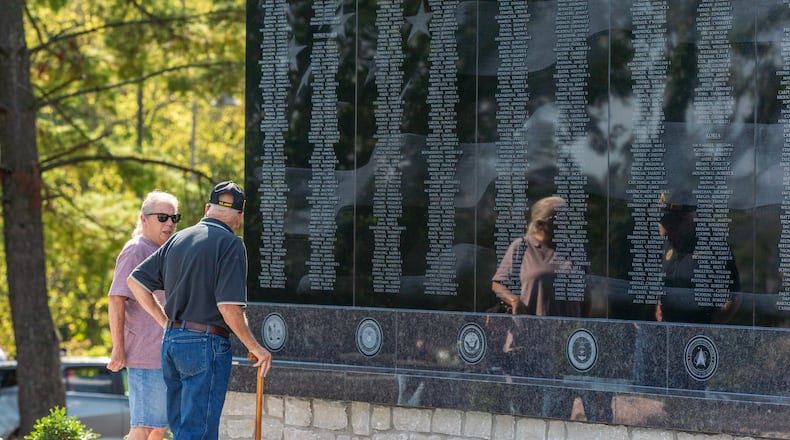The 2024 Annual Report shows from 2019 through last year the veteran population has declined from 21,467 to 19,720 while federal dollars spent supporting local veterans has jumped more than 50% from $173 million to $260 million.
“This sharp growth stands in contrast to a nearly 10 percent decline in the local veteran population during the same period, demonstrating that while the number of veterans is shrinking, their needs are intensifying,” the report reads. “The increase is driven by higher health care utilization, expanded compensation and pension benefits, and the complex needs of an aging veteran community.”
The report notes for every dollar the veterans board spends helping their clients, veterans reap $103 in benefits. The largest outlay of federal dollars in the county for veterans last year went for medical care at $128.4 million. Compensation and pensions came in second at $112.8 million.
The local veterans board uses county general fund dollars to provide services such as transportation, emergency cash and other benefits. The state legislature carved a percentage out of county general funds to help veterans. This year the vet board’s available share is roughly $6.15 million and they have budgeted $4 million for next year.
The annual report shows the board budgeted $3.6 million last year and actually spent $2.5 million, $1.3 million was to pay staff and run the office. There are five appointed commissioners and 13 employees. During the board’s budget hearing with the commissioners Executive Director Mike Farmer said they are swamped and understaffed but have no space to expand. The commissioners are working on a massive space reutilization plan and the veterans board is included, but it will likely be 2027 before they can move and grow.
The board spent $688,027 on direct veteran assistance, such as transportation and food and other expenses.
The largest chunk was $132,763 to help vets with housing costs, $80,194 for food and hygiene, $66,480 for utilities and some smaller allocations. The report shows the majority of the financial assistance applications were from Hamilton and Middletown, where most vets live.
Getting the word out that help is available through advertising and outreach efforts amounted to $398,481 last year.
Suicide prevention has become a big focus, there have been 37 confirmed suicides this year and 13 were veterans, according to the county coroner’s office.
“Our big push is suicide prevention,” Commission President Bruce Jones told the Journal-News. “We’re already way past what we had last year for suicides in the county. You figure we’re 5% of the county but 40% of the suicides, that’s not good odds.”
Farmer said they have a lot of “community collaborations” going on with the mental health board, General Health District and other partners and providers “to try to get to the bottom of that and to break down some of the stigma, the treatment, the access to care around mental health.”
They also started a homelessness initiative this year, and Farmer said they housed nine people and 15 are in or have gone through the program.
They have had a dental plan for five years — only about one out of 19 veterans is eligible for dental services with the VA — but until now it only covered an annual exam, X-rays and cleaning. Next year, with a new Primary Health Solutions contract — the board budgeted $125,000 for the program — they can cover extractions, bridges, partials, dentures and more.
Another major development on the horizon for veterans is a brand-new Veterans Administration community-based outreach clinic (CBOC) coming to Hamilton-Mason Road, just east of Bethesda Butler Hospital in Hamilton. The new clinic will replace the Erie Boulevard location but Farmer said the VA is being “tight-lipped” about the exact details until the federal government shutdown ends.
“We’re getting a brand-new CBOC and it’ll be really nice,” Jones said. “They’ll have expanded things they can do that they aren’t able to do in the small space they’re in now. It’ll be a lot like the CBOC in Middletown, they can do eyes, ears, X-rays they can do just about anything there.”
About the Author
